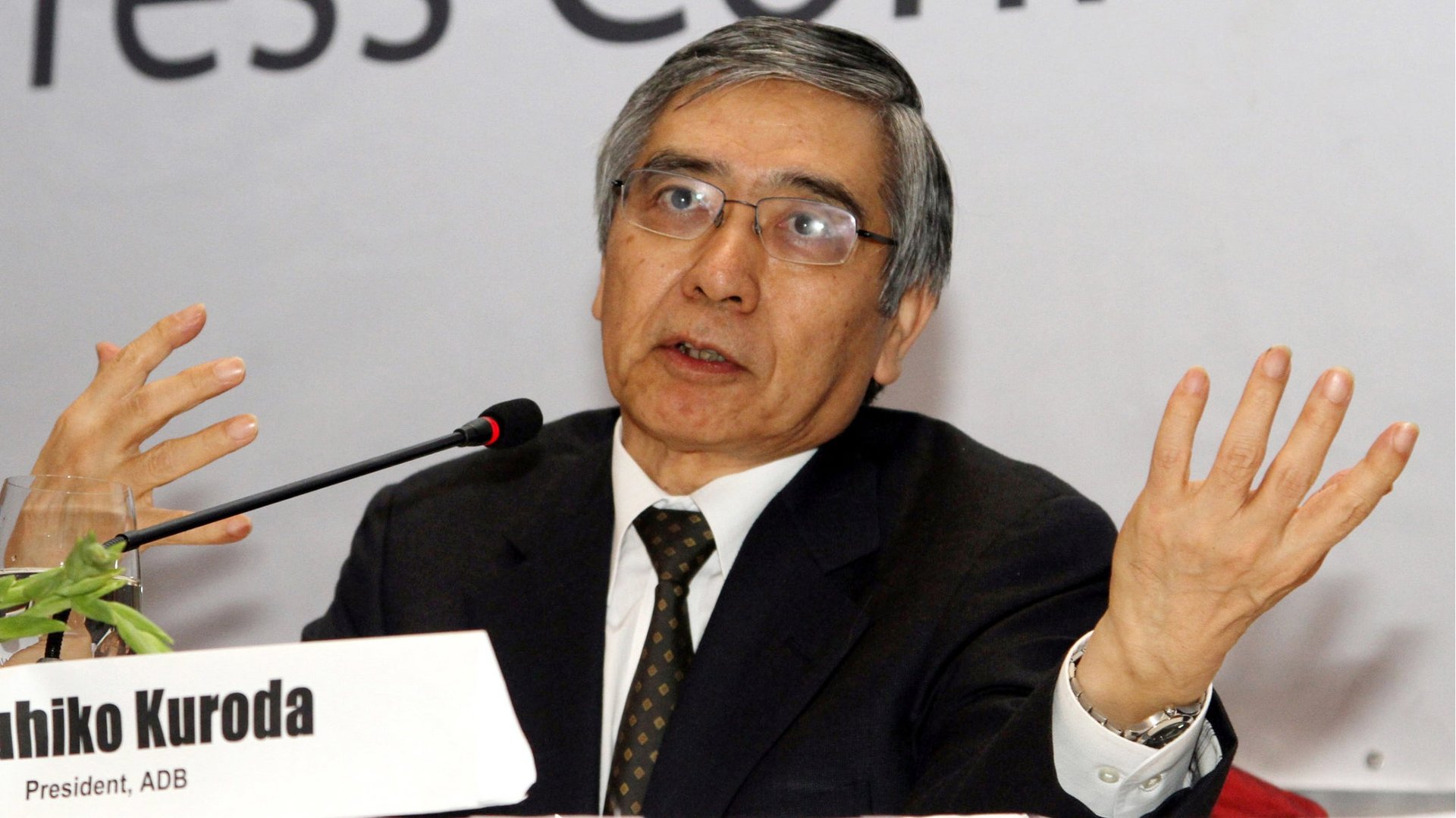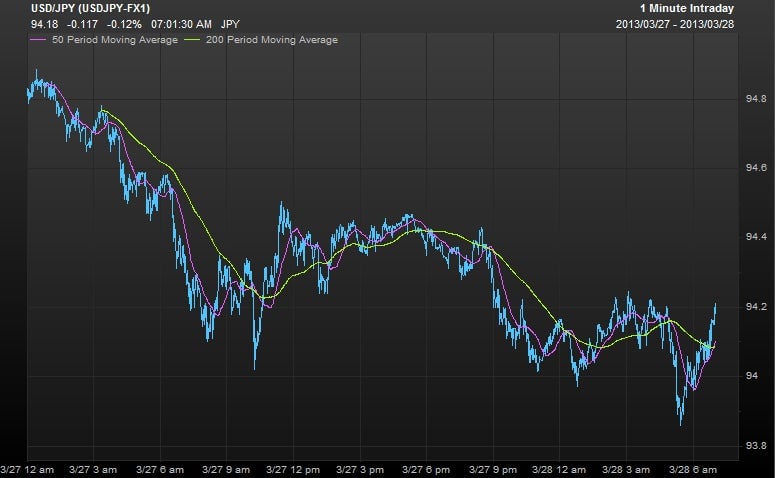The yen punishes Kuroda for pulling nothing new from his central banker bag of tricks
Earlier today, Japan’s central bank head, Haruhiko Kuroda, reminded politicians that the country’s debt—that dark cloud on the horizon that’s now around 230% of GDP—is “extremely high” and “not sustainable.”


Earlier today, Japan’s central bank head, Haruhiko Kuroda, reminded politicians that the country’s debt—that dark cloud on the horizon that’s now around 230% of GDP—is “extremely high” and “not sustainable.”
Kuroda also brought up buying long-dated bonds again today—a key move for encouraging longer-term borrowing of the sort that could revive businesses. And he ruled out foreign bond purchases, which would help drive down the yen versus a given currency. So all those worried about the Japanese government’s crafty currency warfare can rest at ease.
But Kuroda unveiled no new plans (he mentioned long-dated bond-purchases last week.) And the market needs surprisingly aggressive talk or shiny new unconventional monetary easing tactics to keep the yen from strengthening—and certainly not a lecture about something so gloomy as government debt.
This kicked the yen into strengthening mode today, though it’s recovered a bit in the last few hours:

Sure “whatever it takes” is so 2012, but did Kuroda really have to go and remind everyone of the government debt albatross—which is only going to get bigger as Japan kicks off aggressive fiscal stimulus measures?
Of course, the reason the debt is such an unpleasant topic is that, if rates rise, Japan’s debt-servicing costs would go through the roof.
And as we’ve discussed in the past, the biggest risk comes from controlling inflation. Of course, causing inflation also happens to be the entire point of Abenomics. But once price growth sets in, it can be hard to tame. And if Japan is seen to be monetizing its debt—allowing the BoJ to buy the bonds it issues to back Abe’s massive fiscal stimulus—inflation could become even more unwieldy.
“From a long-term perspective, a policy of monetization will only increase the chance of fiscal default,” Ryutaro Kono, chief economist at BNP Paribas Securities, wrote recently, via Nikkei.
Slumping demand, though, could be a longer-term problem as well. For one, demand is robust now, but as the Financial Times explains (paywall), the capacity for Japanese households to keep buying government debt is likely to diminish. And foreigners make up only a small slice of demand for that market. But even as some analysts worry about bond yields climbing next week, current levels are lower than ever.
While it was perhaps a little unnecessary to bring up the debt—particularly since it was a bugbear of former central bank head, Masaaki Shirakawa—the expectations for Kuroda are a little ridiculous.
Japan needs everything it can get from monetary policy to help it shake loose the effects of deflation and the crazy strengthening of the yen in recent years. But what is needed more than anything are concrete (as in “firm,” not as in bridges to nowhere) plans to boost growth. And that will require structural reform to the economy—something far more difficult and long-term in its potential benefits.